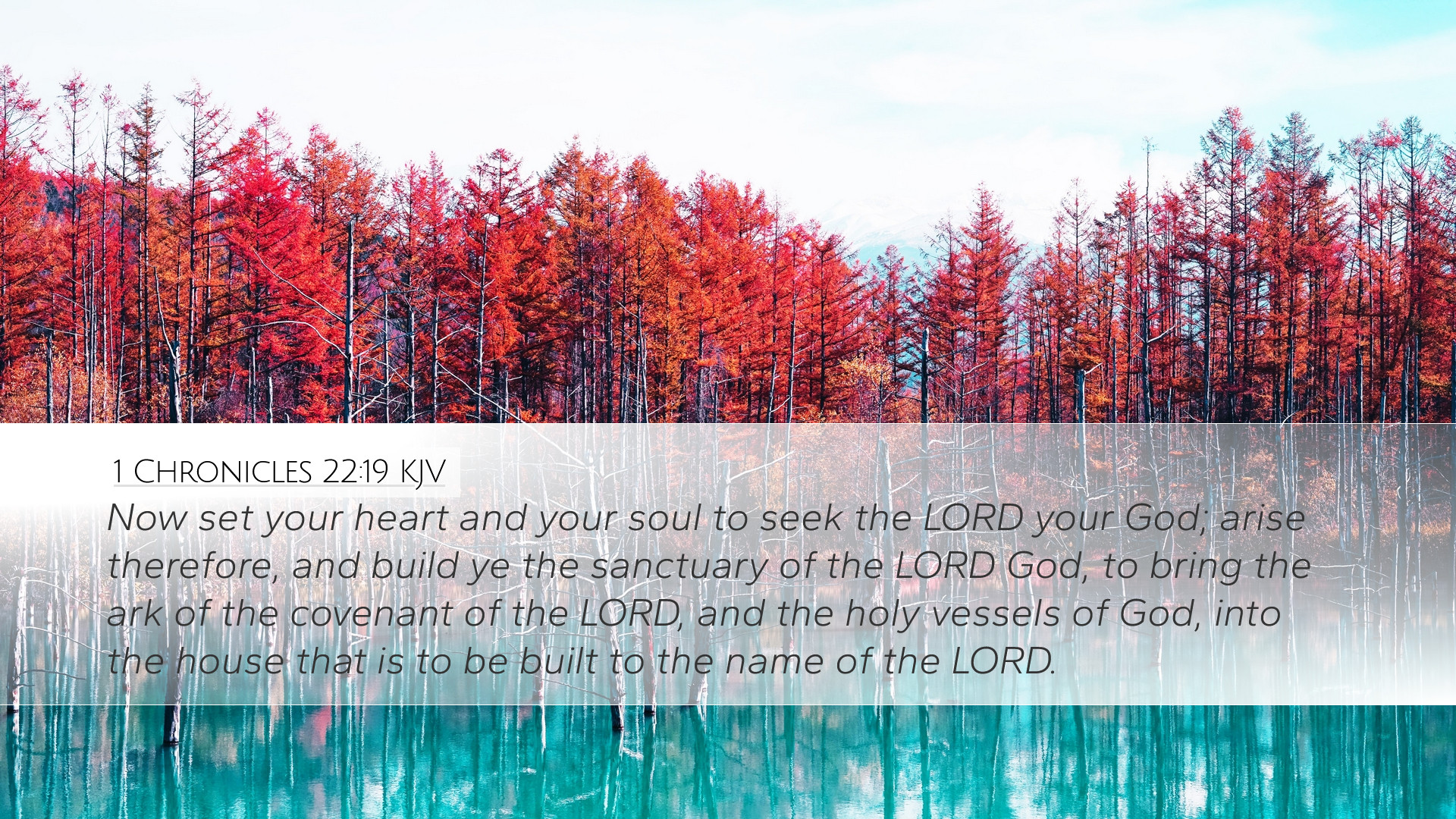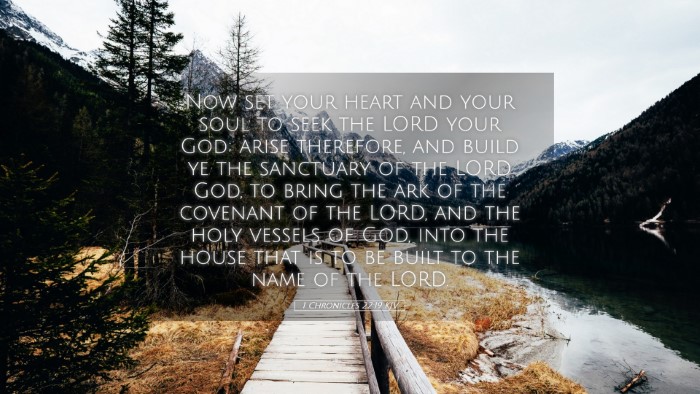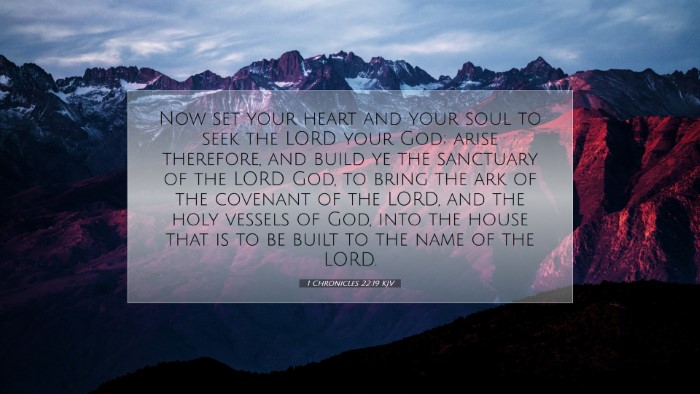Commentary on 1 Chronicles 22:19
1 Chronicles 22:19 states: "Now set your heart and your soul to seek the Lord your God; arise, therefore, and build ye the sanctuary of the Lord God, to bring the ark of the covenant of the Lord, and the holy vessels of God, into the house that is to be built to the name of the Lord."
Contextual Overview
This verse is situated in the context of David's preparations for the building of the temple in Jerusalem. David, having a deep-seated desire to build a house for God, acknowledges that it is required to be built with intentionality and devotion. Here, we find both a call to spiritual earnestness and a mobilization for physical action.
Theological Implications
David’s directive to Solomon carries immense theological weight. It emphasizes the necessary attitude of the heart and soul in spiritual endeavors, underlining that true worship and service to God cannot merely be about the act of building; it must stem from a heart that is genuinely seeking God.
Seek the Lord
David implores Solomon: "set your heart and your soul to seek the Lord your God". This phrase captures the essence of devotion required in serving the Lord. Matthew Henry notes that seeking God is foundational; it involves a deliberate focus on God's presence and purpose. This acknowledgment entails a continual pursuit of understanding God's will, rooted deeply in prayer and scripture.
The Covenant Community
In the context of community, this seeks not only an individual effort but a collective movement toward holiness and dedication. As Adam Clarke expounds, this chase for God aligns closely with the covenant relationship God has established with His people, reminding them of their identity and responsibilities as bearers of His name.
Personal Implications
This scripture holds profound implications for personal spiritual development. The urging to "arise" signifies a time of action following an internal commitment. Albert Barnes elucidates that the physical act of building the sanctuary mirrors a deeper spiritual construction within oneself. True progress in the Christian faith requires a responsive heart that leads to action—translating faith into tangible expressions of service and worship.
The Role of Worship and Community
The building of the sanctuary is fundamentally tied to the community's worship practices. Here, worship is not an isolated experience; it demands a shared space—a communal acknowledgment of God's holiness and glory. The phrase "to bring the ark of the covenant of the Lord" illustrates the importance of God's presence among His people, reinforcing the narrative that worship is centered around His indwelling among them.
Collective Responsibility
Pastors and leaders are called to guide their communities in recognizing their collective responsibility toward worship. Building a sanctuary symbolizes a shared commitment among believers to maintain a sacred space dedicated to the glorification of God. Just as David passed this command to Solomon, it also speaks volumes to our current church leaders about the importance of establishing a lasting spiritual legacy.
Conclusion
In summary, 1 Chronicles 22:19 serves as a profound reminder of the dual aspects of spiritual life—internal disposition and external action. It beckons both current and future generations to ardently seek the Lord, underlines the critical importance of worship, and affirms the imperative of community involvement in building God's house. As students and theologians reflect upon this verse, may they grasp its comprehensive call to not just build physically, but to also construct a faith that is vibrant, community-oriented, and deeply rooted in the presence of God.
Reflection Questions
- What does it mean for us to "set our heart and soul" toward seeking God today?
- How can we as a church ensure that our spaces of worship reflect the intention expressed in this scripture?
- In what ways can individual and corporate worship be strengthened in light of David's call to Solomon?


